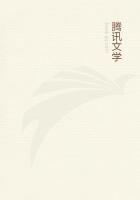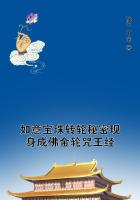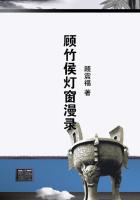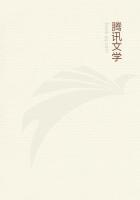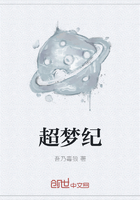CHAPTER I.
CHILDHOOD: DOUBLE EDUCATIONAL ELEMENT.
Of Friedrich's childhood, there is not, after all our reading, much that it would interest the English public to hear tell of.
Perhaps not much of knowable that deserves anywhere to be known.
Books on it, expressly handling it, and Books on Friedrich Wilhelm's Court and History, of which it is always a main element, are not wanting: but they are mainly of the sad sort which, with pain and difficulty, teach us nothing, Books done by pedants and tenebrific persons, under the name of men; dwelling not on things, but, at endless length, on the outer husks of things: of unparalleled confusion, too;--not so much as an Index granted you;to the poor half-peck of cinders, hidden in these wagon-loads of ashes, no sieve allowed! Books tending really to fill the mind with mere dust-whirlwinds,--if the mind did not straightway blow them out again; which it does. Of these let us say nothing.
Seldom had so curious a Phenomenon worse treatment from the Dryasdust, species.
Among these Books, touching on Friedrich's childhood, and treating of his Father's Court, there is hardly above one that we can characterize as fairly human: the Book written by his little Sister Wilhelmina, when she grew to size and knowledge of good and evil; [<italic> Memoires de Frederique Sophie Wilhelmine de Prusse, Margrave de Bareith <end italic> (Brunswick, Paris et Londres, l8l2), 2 vols. 8vo.]--and this, of what flighty uncertain nature it is, the world partly knows. A human Book, however, not a pedant one: there is a most shrill female soul busy with intense earnestness here; looking, and teaching us to look. We find it a VERACIOUS Book, done with heart, and from eyesight and insight;of a veracity deeper than the superficial sort. It is full of mistakes, indeed; and exaggerates dreadfully, in its shrill female way; but is above intending to deceive: deduct the due subtrahend, --say perhaps twenty-five per cent, or in extreme cases as high as seventy-five,--you will get some human image of credible actualities from Wilhelmina. Practically she is our one resource on this matter. Of the strange King Friedrich Wilhelm and his strange Court, with such an Heir-Apparent growing up in it, there is no real light to be had, except what Wilhelmina gives,--or kindles dark Books of others into giving. For that, too, on long study, is the result of her, here and there. With so flickery a wax-taper held over Friedrich's childhood,--and the other dirty tallow-dips all going out in intolerable odor,--judge if our success can be very triumphant!
We perceive the little creature has got much from Nature; not the big arena only, but fine inward gifts, for he is well-born in more senses than one;--and that in the breeding of him there are two elements noticeable, widely diverse: the French and the German.
This is perhaps the chief peculiarity; best worth laying hold of, with the due comprehension, if our means allow.
FIRST EDUCATIONAL ELEMENT, THE FRENCH ONE.
His nurses, governesses, simultaneous and successive, mostly of French breed, are duly set down in the Prussian Books, and held in mind as a point of duty by Prussian men; but, in foreign parts, cannot be considered otherwise than as a group, and merely with generic features. He had a Frau von Kamecke for Head Governess,--the lady whom Wilhelmina, in her famed <italic> Memoires, <end italic> always writes KAMKEN; and of whom, except the floating gossip found in that Book, there is nothing to be remembered.
Under her, as practical superintendent, SOUS-GOUVERNANTE and quasi-mother, was the Dame de Roucoulles, a more important person for us here. Dame de Roucoulles, once de Montbail, the same respectable Edict-of-Nantes French lady who, five-and-twenty years ago, had taken similar charge of Friedrich Wilhelm; a fact that speaks well for the character of her performance in that office.
She had done her first edition of a Prussian Prince in a satisfactory manner; and not without difficult accidents and singularities, as we have heard: the like of which were spared her in this her second edition (so we may call it); a second and, in all manner of ways, an improved one. The young Fritz swallowed no shoe-buckles; did not leap out of window, hanging on by the hands;nor achieve anything of turbulent, or otherwise memorable, in his infantine history; the course of which was in general smooth, and runs, happily for it, below the ken of rumor. The Boy, it is said, and is easily credible, was of extraordinary vivacity; quick in apprehending all things, and gracefully relating himself to them.
One of the prettiest, vividest little boys; with eyes, with mind and ways, of uncommon brilliancy;--only he takes less to soldiering than the paternal heart could wish; and appears to find other things in the world fully as notable as loud drums, and stiff men drawn up in rows. Moreover, he is apt to be a little unhealthy now and then, and requires care from his nurses, over whom the judicious Roucoulles has to be very vigilant.
Of this respectable Madame de Roucoulles I have read, at least seven times, what the Prussian Books say of her by way of Biography; but it is always given in their dull tombstone style;it has moreover next to no importance; and I,--alas, I do not yet too well remember it! She was from Normandy; of gentle blood, never very rich; Protestant, in the Edict-of-Nantes time; and had to fly her country, a young widow, with daughter and mother-in-law hanging on her; the whole of them almost penniless. However, she was kindly received at the Court of Berlin, as usual in that sad case; and got some practical help towards living in her new country. Queen Sophie Charlotte had liked her society; and finding her of prudent intelligent turn, and with the style of manners suitable, had given her Friedrich Wilhelm to take charge of.
She was at that time Madame de Montbail; widow, as we said:

